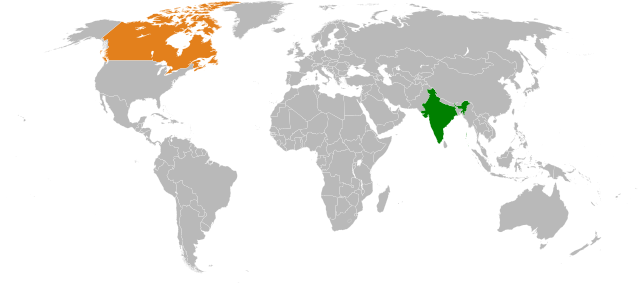In a discreet diplomatic move, the Foreign Ministers of India and Canada reportedly held a confidential meeting in Washington, D.C., amid escalating tensions between the two nations. The meeting, which took place during India's Minister of External Affairs S Jaishankar's visit to the U.S., aimed to address the ongoing disputes and allegations that have strained bilateral relations.
The Context of the Meeting
The clandestine meeting between Jaishankar and Canada's Foreign Minister, Melanie Joly, was held during the former's trip to the U.S. from September 27 to 30. The Financial Times, citing anonymous sources, revealed the occurrence of this meeting, which was primarily orchestrated in light of the India-Canada disagreement over the killing of Sikh separatist Hardeep Singh Nijjar.
The relationship between India and Canada took a nosedive after Canadian Prime Minister Justin Trudeau claimed there were "credible allegations" connecting India to Nijjar's assassination in June. India vehemently denied these allegations, dismissing them as "absurd." During his U.S. visit, Jaishankar expressed India's stance, stating that the country was open to examining any evidence Canada might present related to Nijjar's death.
Diplomatic Repercussions
The tensions between the two nations escalated to a point where New Delhi reportedly requested Canada to repatriate 41 of its 62 diplomats stationed in India. Although no official statements were released regarding the exact number of diplomats to be relocated, Arindam Bagchi, the spokesperson for India's external affairs ministry, emphasized the need for diplomatic parity. He highlighted the disproportionate number of Canadian diplomats in India and their alleged interference in India's internal affairs.
Bagchi elaborated, "Given the much higher presence of diplomats or diplomatic presence here and their continued interference in our internal matters, we have sought parity in our respective diplomatic presence. Discussions are ongoing on the modalities of achieving this."
Reports suggested that India had set a deadline of October 10 for Canada to repatriate its diplomats. Those who remained in India post-deadline would potentially face the revocation of their diplomatic immunity. Canadian news outlet CTV News reported that a majority of the diplomats, especially those stationed outside New Delhi, were evacuated, with many being relocated to Kuala Lumpur or Singapore.
However, contradicting these reports, the Financial Times cited sources claiming that Ottawa did not proceed with the withdrawal of its diplomats before the stipulated deadline.
The covert meeting between the Foreign Ministers of India and Canada in Washington underscores the complexities of international diplomacy. As two significant global players, the resolution of disputes between India and Canada is crucial for maintaining stability and fostering collaboration in various sectors. While the outcome of the meeting remains undisclosed, it is evident that both nations are keen on navigating the challenges and finding common ground.





